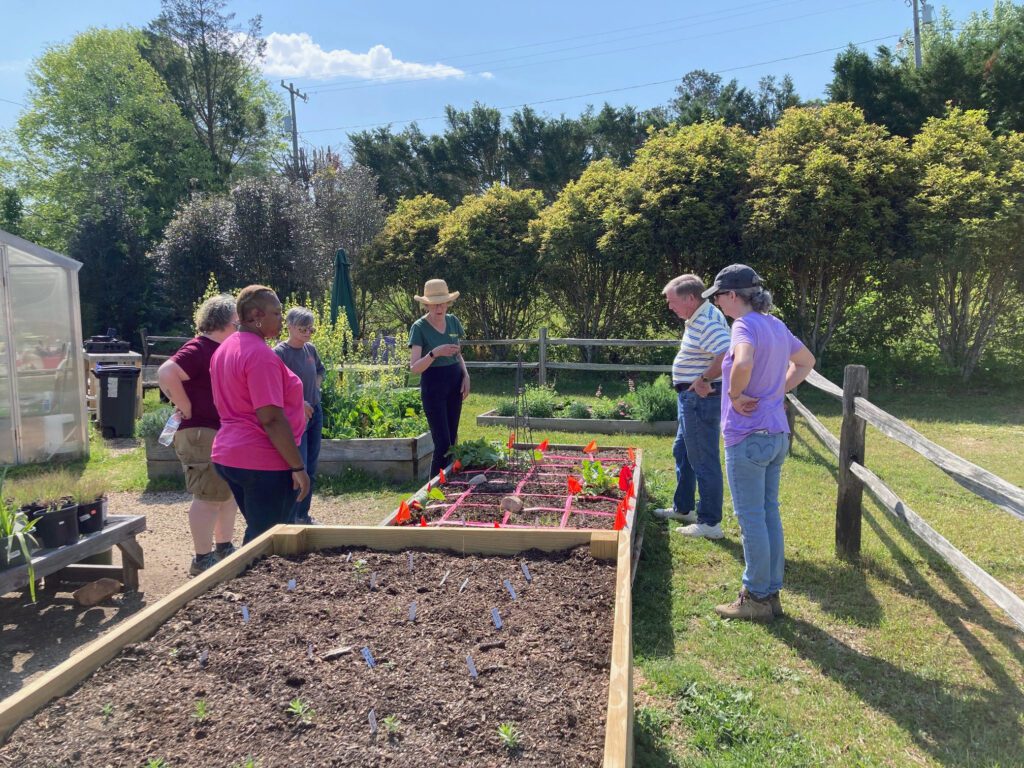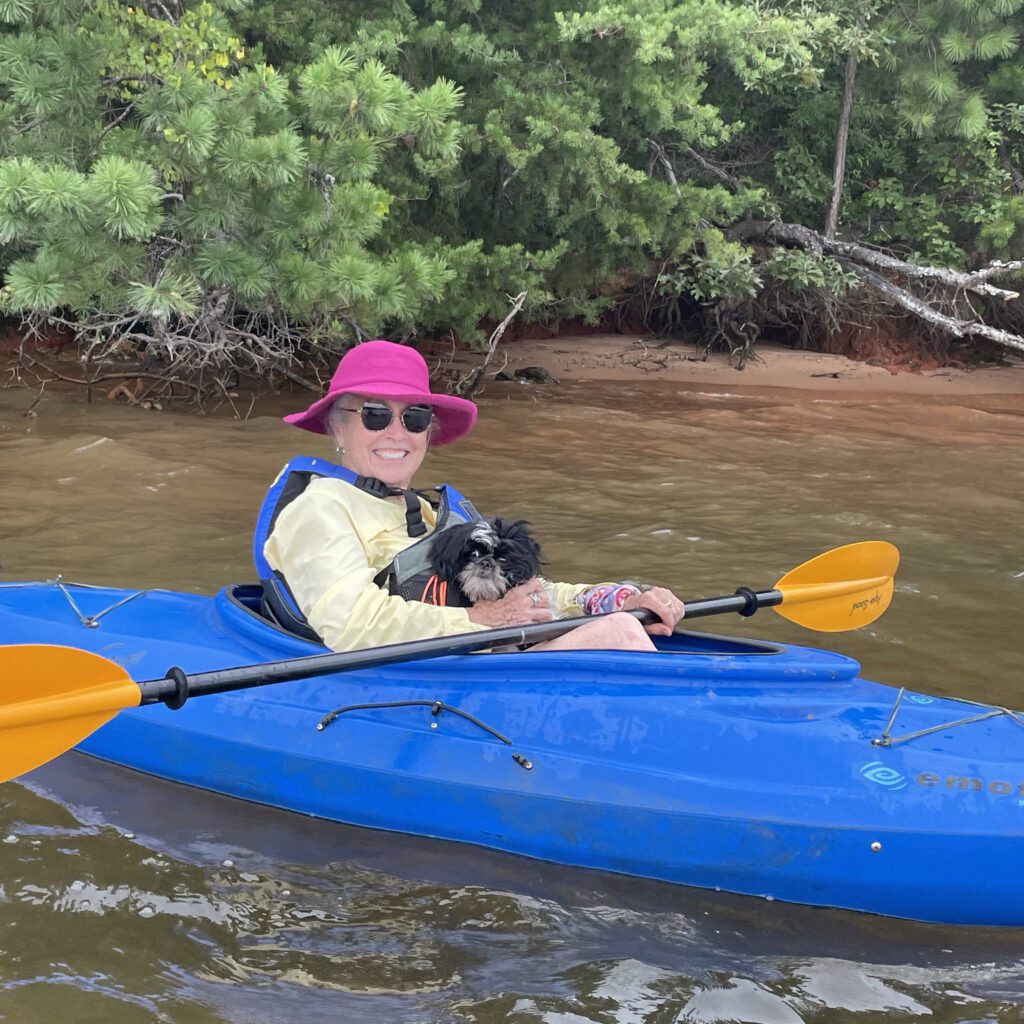Extension volunteers help Clemson University carry out its land-grant mission through lifelong learning in local communities
With more than 4,500 volunteers reporting almost 90,000 hours of service last year, the Clemson University Cooperative Extension Service relies on those who freely give their time — and talents — to improve the lives of others.
The volunteers who help Extension carry out its land-grant mission of delivering unbiased, research-based information to all South Carolinians say they get as much out of their service as they devote to it.
Ann Barklow and Missy Lowery, both of Greenwood, enjoy the hands-on work and personal interactions with some of the state’s most enthusiastic gardeners, often culminating in receiving cell-phone pictures each spring and summer when students share the gardens that were built from their lessons.
For Clemson undergraduate Vone’ Whaley, it’s because she believes in the power of youth leadership development and community engagement.
And for Eleanor Nault, who has enough degrees from Clemson to use the term “several,” it’s the opportunity to share her passion for the natural world.
While each volunteer has their own motivations, there is no denying their impact on helping Clemson Extension fulfill its land-grant mission.
The nationwide Cooperative Extension system was created in the spirit of people helping others in their own states, and our volunteers bring those same values and motivations to the programs they support. Volunteers are essential to our efforts across the state of South Carolina, and Clemson Extension could not reach as many people as we do, nor have nearly as much impact, without their work.
Clemson Cooperative Extension Director Tom Dobbins
Clemson Extension volunteers in 2023
- Master Naturalist Program: 314 volunteers contributed 22,126 hours.
- Master Gardener Program: 919 volunteers contributed 66,219 hours.
- S.C. 4-H Youth Development: 3,347 volunteers, including 2,251 adults and 1,096 youths.
S.C. MASTER GARDENER PROGRAM
Missy Lowery and Ann Barklow
In South Carolina, urban growth and increased interest in the environment and home gardening have resulted in a boom in demand for reliable gardening information. Rising to meet the demand, the South Carolina Master Gardener Program relies on knowledgeable volunteers to facilitate the work of Extension urban horticulture agents through one-on-one interactions, educational programs, demonstrations and displays.

In fiscal year 2023 alone, S.C. Master Gardeners helped more than 200,000 people through over 66,000 hours of volunteer service — or the equivalent of 38.4 full-time Extension Agents.
“Volunteering as a Master Gardener is the one place you can get your hands dirty, learn something new each time and teach someone else a better, more effective approach without the fear of someone taking offense,” said Lowery, past president of the Lakelands Master Gardeners. “We all learn, and we all grow together. I have plants given to me by extraordinarily good Master Gardeners and each time I weed my beds, I think how lucky I am to have found a whole family of friends and plants I can grow with.”
Based on the average Independent Sector Value of $31.80 per volunteer hour in the U.S., that puts the service of Master Gardeners at a value to the state of South Carolina well over $2 million last year.
Not that the volunteers themselves worry about the finances.
Barklow, Bee City USA Coordinator and Master Gardener, appreciates the intrinsic and the inherent value of the program, saying she finds what’s most rewarding is to watch people get enthusiastic about the nature surrounding them.
“My phone blows up in the spring and summer with pictures people send me as they applied what I teach in their gardens,” she said.
But while the Master Gardeners make a massive impact — financially and practically — on their home state, they are far from the only Clemson Extension program team volunteers who do so.
4-H YOUTH DEVELOPMENT
PINCKNEY LEADERSHIP PROGRAM
Vone’ Whaley
The 2,251 adults and 1,096 youth who volunteered last year for South Carolina 4-H Youth Development are tough to top in terms of sheer numbers. 4-H relies on that service to help the state’s young people grow into productive members of society and encourage them to be the next generation of leaders.
One volunteer who certainly appears poised to lead in the future is Clemson University sophomore Vone’ Whaley, an Industrial Engineering major from Columbia, South Carolina.

Whaley serves as a mentor in the 4-H Pinckney Leadership Program, founded in honor of the late Sen. Clementa Pinckney, one of the state’s foremost modern civil rights leaders, to set forth the standards and principles he valued.
“With 4-H, I admired how consistent they are with the students and make it their mission to constantly reach out about events to keep their students engaged and involved,” Whaley said. “One of the key differences I see the program is making is in the confidence and competence of the young participants.”
In addition to volunteering with 4-H, Whaley is a mentor for the Programs for Educational Enrichment and Retention and Women in Science and Engineering program, where she mentors incoming first-year and transfer students in the College of Engineering and Applied Sciences.
Whaley said that through various events such as the 4-H Leadership Round-Up or the S.C. State Fair, students learned to communicate effectively, get out of their comfort zone, work collaboratively and take initiative.
“I feel this helps them become equipped with skills to not only benefit them personally but also for their future where they will be leaders who will make a difference in society,” Whaley said. “Being involved with 4-H has been incredibly rewarding to witness the growth of youth participants while also having the opportunity to invest in the next generation through the impact of mentorship and guidance.”
S.C. MASTER NATURALIST PROGRAM
Eleanor Nault
While Whaley’s time on campus is just beginning, El Nault arrived at Clemson in the 1960s and has since served as a student, faculty member and, these days, as a volunteer for the South Carolina Master Naturalist program by Clemson Extension.

The four degrees Nault has earned from the University might seem like enough learning for some, but she doesn’t plan to stop educating herself — or others — anytime soon.
“Lifelong learning teaches us as adults that we have a niche, and we don’t necessarily know everything, and there’s so much more to learn,” she said. “That attitude of curiosity about the world around me and thinking about how I’m affecting the world and how it’s affecting me, and what I could do differently, is what I want to share with somebody — that they are a part of something bigger than their space around them.”
A longtime Upstate resident by now, Nault felt she had a strong base of knowledge about the local environment even before she joined Extension’s Master Naturalist Program.
But during an April 2019 trip to Jones Gap State Park, which has 17,000 acres of pristine mountain woodlands that join with Caesars Head to form the Mountain Bridge Wilderness Area, Nault learned it was one of the top five areas in the world for species diversity — and, in turn, that she had much more to learn.
“I had no idea what a magical place I was in,” she said.
With a vision to empower people to cultivate ecological awareness and action, the Master Naturalist program aims to provide nature-based education and inspire citizen volunteers to promote environmental stewardship within their communities.
And Nault is undoubtedly a shining example of that.
“I want people to be inspired by the world around them, and sometimes we have to have new facts and ideas in order to see the world differently,” Nault said. “I think my job is to help people see the world differently.”
Get in touch and we will connect you with the author or another expert.
Or email us at news@clemson.edu

